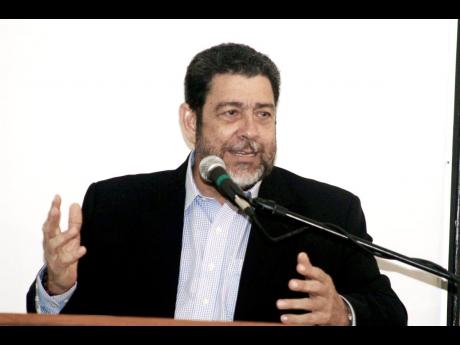Elizabeth Morgan | CARICOM: Rising to the challenges
Another CARICOM Day has passed. It was acknowledged to varying degrees across the region and at diplomatic missions overseas. The CARICOM secretary general, Ambassador Irwin LaRoque, made a statement on Saturday, July 4, congratulating the community on its 47th anniversary and outlining its achievements. Yes, there are achievements. It is widely acknowledged that the region has been able to contain the spread of COVID-19. There are commendations for the region’s organisation of its reopening. We must commend the work of the CARICOM Secretariat, the Caribbean Public Health Agency, the Caribbean Disaster Emergency Management Agency, CARICOM Implementing Agency for Crime and Security, the Regional Security System and the member states. This has been in collaboration with the Pan American Health Organization and the World Health Organization. Situations like COVID-19 demonstrate that for small countries in the Caribbean, unity is strength.
On Friday, July 3, the CARICOM heads had a virtual meeting to formally hand over the chairmanship from Prime Minister Mia Mottley of Barbados to Prime Minister Ralph Gonsalves of St Vincent and the Grenadines. The formal on-site CARICOM Conference of Heads of Government would normally have been hosted by the incoming chair on dates coinciding with CARICOM Day. With COVID-19, this year would be different. The formal meeting will likely be convened in September.
Let’s salute the chairmanship of Prime Minister Mia Amor Mottley of Barbados. She gave sterling service. Her passion for regional integration shone through and she never failed to wear her CARICOM hat on the international stage, including in interviews on the BBC and CNN. When she hosted the Intersessional Meeting of Heads in Barbados in February, her agenda was more focused on the CARICOM Single Market and Economy (CSME) and I actually thought that her work programme was overambitious. By early March, COVID-19 had set a new and unexpected agenda and, with the support of the CARICOM institutions and her colleague heads, Prime Minister Mottley steered the ship well through choppy seas.
Prime Minister Gonsalves, the veteran, is now at the helm. The next six months will be very challenging for CARICOM and its member states. The economic projections from all the international organisations (IMF, OECD, World Bank, UNCTAD, WTO) are extremely gloomy for a region dependent on trade in goods and services (primarily tourism) and already heavily indebted. For tourism, although industry representatives seem quite optimistic about arrivals for July-August, the situation in the USA, where COVID-19 infections are increasing, does not make me optimistic. The United States has not managed COVID-19 effectively and that has serious implications for us in the Caribbean who are trying to open, receive visitors and keep national populations safe. For member states relying on oil and gas, the outlook is also not so bright. Short-term emergency measures will be necessary.
For the longer term, this takes us back to the February Intersessional Meeting of Heads and its work programme (my article of February 26). Implementing the CSME, including food security (my article of May 20), has to move from an ambition. It was heartening to read that some private sector firms in Jamaica were increasing exports within CARICOM.
DIVERSIFYING ECONOMIES
On international trade, I have written recently on trade with Africa (February 5), trade with the USA (June 10), Europe (UK and EU) (June 24) and with Latin America (July 1). CARICOM will not have robust growth and increased job creation without engaging in international trade. Thus, the regional and national private-sector groups and trade promotion bodies have to search out the opportunities in this time of crisis.
Diversifying economies has been discussed for years in the Caribbean. Of course, some economies are more diversified than others. Diversification needs to be given further attention, including promoting research and development.
Improving regional transportation has been on the agenda from the outset. Studies have been done. Now LIAT, the Leeward Islands Air Transport, not ‘Leave Island Any Time’, has been liquidated. In my view, any entity replacing it should be linked in the reservation system to Caribbean Airlines, and schedules should permit same-day connections, so that it does not incur additional cost for stopovers. It should not take two days to travel from Jamaica to the Eastern Caribbean. It also needs to be more cost effective.
There are other problems facing the region, such as governance; leaders must be accountable and elections credible.
The people of the region also have their part to play in ensuring that COVID-19 can continue to be contained and that, united, we can successfully navigate these choppy seas, which we pray will not be made worse during this hurricane season.
Chairing CARICOM is an added undertaking for St Vincent and the Grenadines, now serving a two-year term on the UN Security Council, 2020-2022.
I am hoping the region will rise to this economic challenge with the support of the international community. Over to you, PM Gonsalves.
Elizabeth Morgan is a specialist in international trade policy and international politics. Email feedback to columns@gleanerjm.com.

